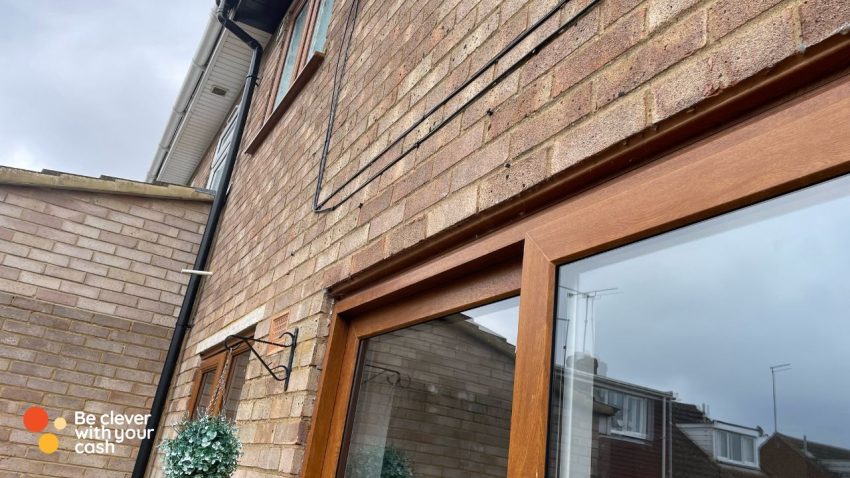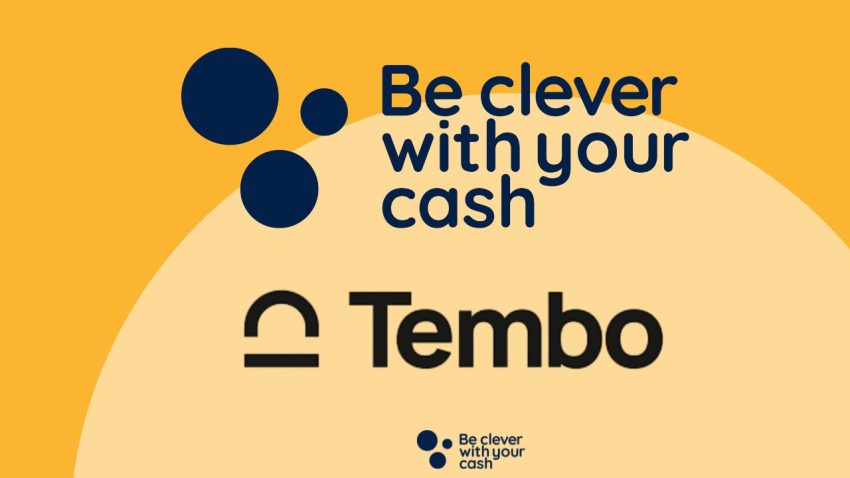Are you wondering whether to fix your mortgage rate? This is what you need to know
Fixed rate mortgages are the most common type of deal on the market. But knowing how long to fix for can be tricky, especially when there’s a lot of uncertainty in the wider economy.
In this guide, I break down how long you can and should fix for, the implications of ending a fixed rate early and how to find the best one.
Some articles on the site contain affiliate links, which provide a small commission to help fund our work. However, they won’t affect the price you pay or our editorial independence. Read more here.

What is a fixed rate mortgage?
Fixed rate mortgages charge you a set interest rate for a specified period of time, usually two, five or 10 years.
Unlike a variable rate mortgage where the interest rate can fluctuate, impacting your monthly payment, a fixed rate mortgage keeps your monthly payments the same throughout the term.
Why do people get one?
There are a few reasons fixed rate mortgages are popular.
Firstly, they give you the certainty that you’ll be paying the same amount each month for the term – there’ll be no surprise hikes because the rate, as stated, is fixed. This is really reassuring for most people and helps you manage the rest of your household budget.
This is different to Standard Variable Rate (SVR) mortgages – which are usually the most expensive option – and tracker mortgages, which usually follow the movements of the Bank of England base rate, so the interest rate can go up or down.
With this in mind, fixed rate mortgages also offer protection against future rate rises. However, if interest rates fall (which they can do, too) you’ll miss out on cheaper deals if you’re tied into a fixed deal.
Mortgage rates change and in previous years fixed rate deals can often charge lower interest rates than variable mortgages. At the moment, the best two year fixed rate mortgage deal is 3.84% (based on a 60% LTV and 35-year term), while the best two year variable tracker deal is 4.36%, based on a 60% LTV and according to mortgage broker Tembo.
In the long-run, you could save money with a fixed rate mortgage as you’ll not only be protected from future interest hikes but you could also potentially pay less in fees.
Every time you get a mortgage, or remortgage, you may have to pay a spate of fees which could end up being hundreds or thousands of pounds. The longer you fix, the fewer times you’ll need to remortgage, and the less you’ll pay in fees.

Try our mortgage calculator
Our mortgage calculator helps simplify things by giving you an idea of how much you could borrow and your likely monthly repayments.
How long can you fix for?
Typically you can expect to see fixed interest rates with terms of between two and 10 years.
While it may be tempting to lock in the rate for as long as possible and protect against future interest rises, plus reduce the fees you pay, as mentioned above, you could end up paying more if interest rates fall.
But it’s a balancing act because going for shorter terms, while offering more flexibility, could result in paying more in fees as you’ll be applying for more mortgages in the long-run.
So, when deciding whether a fixed rate mortgage is right for you, you’ll need to weigh up if you value longer-term certainty of paying the same every month over short-term flexibility, in the hope rates will fall.
I’d definitely recommend speaking to a mortgage broker about your options (more on this below) although no one can truly predict what will happen with mortgage rates.
Get the best of our money saving content every week, straight to your inbox
Plus, new Quidco customers get a high paying £18 welcome offer

How long should you fix for?
It’s the question most people ask, but there’s no simple answer.
How long you should fix for depends on lots of different factors, but let me break the basics down below. I’ve calculated the savings comparison based on a mortgage of £200,000 on a variable rate of 8%, costing around £1,540 per month.
Two year fix
This could be good if you’re anticipating a relocation or significant income change which means you’re likely to move home in the near future. Or if you’re a first-time buyer who wants to move up the property ladder fairly quickly.
Benefit: Shorter commitment so you can take advantage of better deals sooner if rates drop.
Risk: If the economy is struggling for longer, it can push rates up. You may end up paying more by having to move to a new, more expensive deal sooner. Plus, every time you remortgage you may need to pay fees so it could end up being expensive if you keep opting for short-term deals.
Potential saving vs SVR: Say you had £200,000 outstanding on your mortgage loan with a 25 year mortgage term. If you had a fixed mortgage rate of 4.5% your repayments would be £1,111. If you were previously on your lender’s SVR at 7.48%, moving to the fixed mortgage rate at 4.5% would save you £364 per month.

Compare mortgage rates and deals
Looking for a mortgage? Find the top rates from over 200,000 deals and 100+ lenders with our live tables.
Five year fix
This may be suitable if you’re happy where you’re living with no immediate plans to move or you’re parents with young kids who want a bit of financial stability until they’re older.
Benefit: Can shield you for longer from potential rate hikes if the Bank of England rate is consistently increasing.
Risk: If the standard variable rate or other deals fall below your fixed interest rate, you may not be able to switch without paying an early exit fee, which could be thousands of pounds.
Potential saving vs SVR: If you had £200,000 outstanding on your mortgage loan with a 25 year mortgage term, with a fixed mortgage rate of 4% your repayments would be £1,055. If you were previously on your lender’s SVR at 7.48%, moving to the fixed mortgage rate at 4% would save you £420 per month.
10 year fix
If you’re in your forever home or heading towards the last 10 years of your mortgage term and want certainty around payments, you consider a 10 year fix.
Benefit: Can provide long-term certainty in how much you’ll pay and lower additional costs associated with switching deals more frequently.
Risk: A lot can happen in the economy over 10 years, so being tied in for longer could mean you miss out on much lower interest rate deals.
Potential saving vs SVR: As an example, if you had £200,000 outstanding on your mortgage loan with a 25 year mortgage term, with a fixed mortgage rate of 3.8% your repayments would be £1,034. If you were previously on your lender’s SVR at 7.48%, moving to the fixed mortgage rate at 4% would save you £441 per month.
Can you exit your fixed rate early?
Yes, you can. But (and it’s a big but) most fixed-rate mortgages come with early repayment charges (ERCs) which can be quite hefty.
You have to pay ERCs when you pay off your mortgage early or switch to a new interest rate deal before the end of the term. Lenders charge them to make up for the lost interest they’d receive if you’d stuck with the deal for the full term.
The ERC you’ll pay is usually a percentage of the entire mortgage you still owe. It’s typically between 1-5% but this percentage tends to decrease with every year you have it.
This is how it usually works, using the example of a £200,000 mortgage:
| ERC | ERC amount | |
| Leaving the deal in year one | 5% of £200,000 | £10,000 |
| Leaving the deal in year two | 4% of £200,000 | £8,000 |
| Leaving the deal in year three | 3% of £200,000 | £6,000 |
| Leaving the deal in year four | 2% of £200,000 | £4,000 |
| Leaving the deal in year five | 1% of £200,000 | £2,000 |
How can you find the best rate?
Using a broker is a really good place to start as they’ll do all the searching and comparing for you. Make sure you pick one that works with the whole of the market, like Habito or L&C Mortgages. They’re both free as they rely on commission from lenders for payment for their services.
A broker will ask you about your income and outgoings to see what fixed rate you can comfortably afford to pay. They’ll search available deals for you and come up with a list of the ones you’re most likely to be approved for. You can then compare different rates and see what you’ll be paying each month before choosing and going ahead.
It can be tempting to just stick with your current lender and switch to one of their deals (I’ve done this myself when I left things too late), but this can often be more expensive. If you’re organised and start looking for a new deal six months before your current one comes to an end, you could save £1,000s in the long run.
Finding the right rate is the priority, but you also want a reliable lender. Reading reviews has always helped me to get a sense of how current and past customers rate their commitment to service, responsiveness and their overall experience.
How long should you fix for?

Katy’s analysis
I’m a homeowner who’s always preferred certainty around how much I’ll be paying, so I usually choose a longer fixed rate. A few years ago, I opted for a 10-year fix and it worked out brilliantly for me. I managed to lock in a 2.19% deal just before rates started climbing. I was happy with the lender, I knew I had no plans to move or give up my homeownership status, so it was the smartest choice for me.
But, although longer fixed rates are great for that extended certainty, they carry a risk. You could feel settled right now and have no plans to move but you never know how life will change over the next five to 10 years. Relationship break-ups, losing your job, having children or needing to relocate for work are just some of the life events that could mean you have to move unexpectedly.
A lot can happen economically in a decade, too. If wider interest rates go up, you’ll benefit from being on a fixed rate deal, but you’ll also be stuck on it if rates go down.
I was happy to take the risk as I felt comfortable with the amount I’d be paying even if future rates dropped below 2.19%, but it’s a crucial consideration.
Shorter fixes might be better if the market’s a bit shaky and you want to lock-in until the economy settles and you can grab a better rate. Sometimes interest rates rise due to temporary bumps in the economy or politics, rather than increases due to longer term events like a recession.
It’s a gamble though. Rates could stay high or even climb just as your fixed rate term is ending so you have to be prepared for that possibility.
Important
*Your home may be repossessed if you do not keep up repayments on your mortgage. Be Clever With Your Cash may receive a payment from Tembo Money if you complete a mortgage through the link provided. This will not affect the amount you pay for the service.
This broker fee discount of up to £499 is applicable for standard mortgages and remortgages only, more complex cases including guarantor, buy-to-let, adverse credit, and equity transfer may be liable for a fee. The fee you are required to pay will be clearly outlined by your adviser prior to an application being submitted on your behalf. The offer does not cover any other potential fees that may arise during the mortgage process.
Tembo Money Limited (12631312) is a company registered in England and Wales with its registered office at 18 Crucifix Lane, London, SE1 3JW. Tembo is authorised and regulated by the Financial Conduct Authority under the registration number 952652. Tembo Money was awarded Best Mortgage Broker at the British bank awards in 2022, 2023, 2024 and 2025. Rates are not guaranteed and may change by the time you come to apply. Eligibility criteria may vary by lender.
Our calculator is only an estimate of how much you are able to borrow and does not constitute mortgage advice




